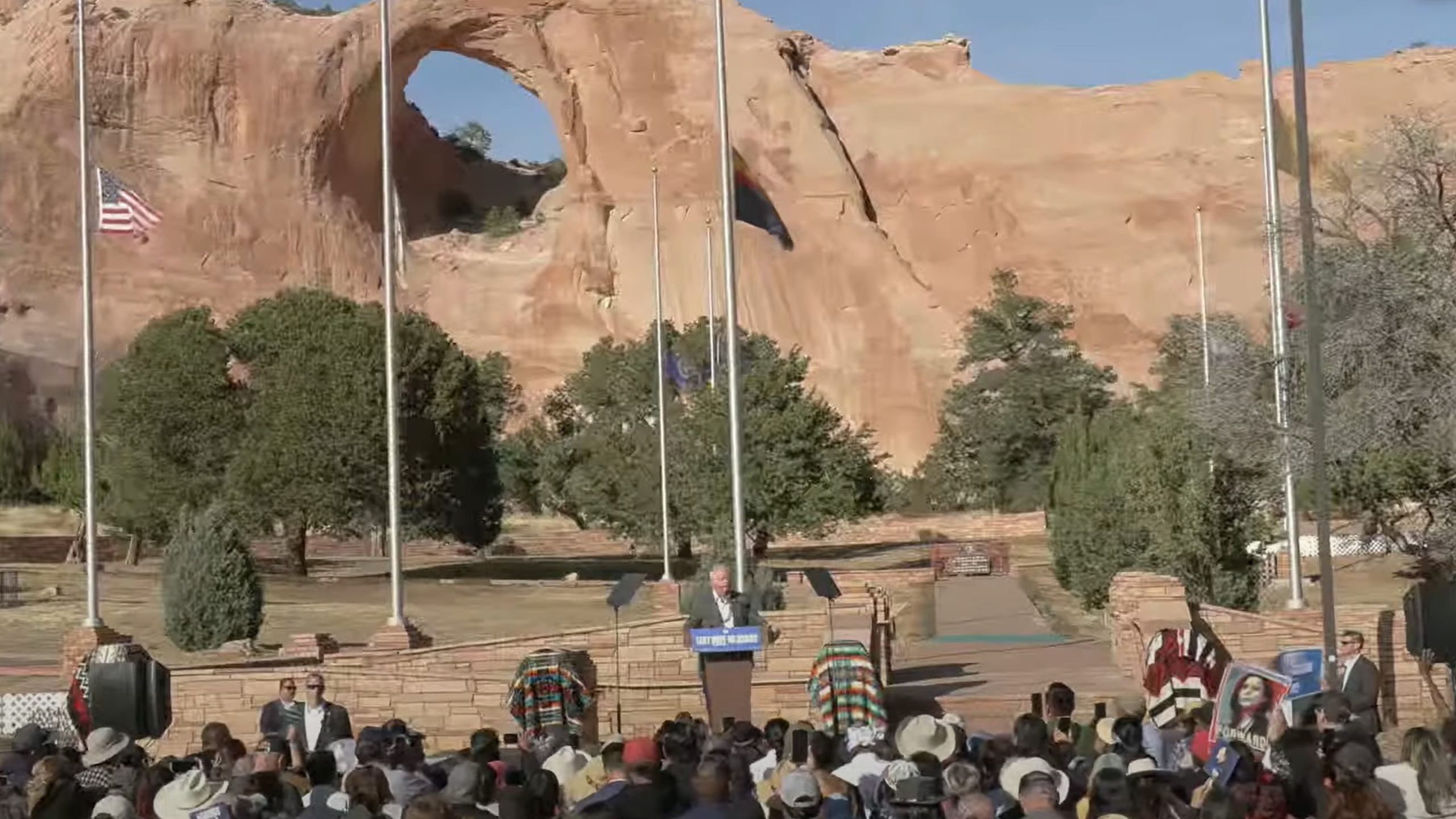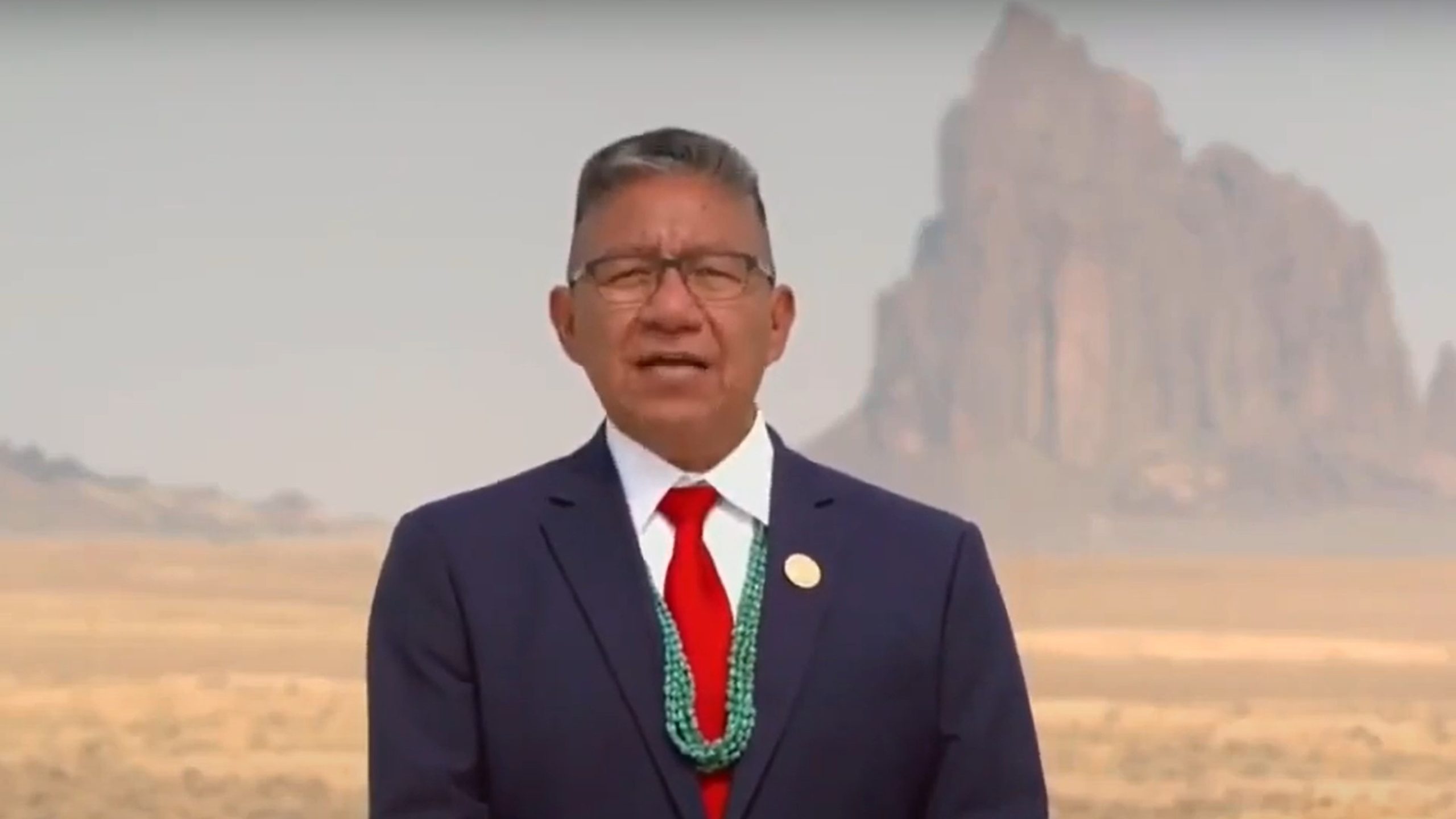Podcast: Play in new window | Download | Embed
Native people across the country are responding to President Joe Biden’s formal apology Friday for federal Indian boarding school policies.
“I formally apologize as president of the United States of America for what we did. I formally apologize.”
KUNC’s Emma VandenEinde has reaction from Colorado.
Tribal Chairman Manuel Heart from the Ute Mountain Ute tribe in Colorado says it’s a great starting point. But he thinks one of the main steps toward healing is revitalizing the Native languages.
“The extermination didn’t work, but the assimilation that they did to these boarding schools to take away the language, it affected three fourths of the tribal nations across this country. So that’s why it’s so important to bring it back.”
Chairman Heart says he and other tribal leaders have already taken some of their own actions, like getting a charter school on their reservation and working on an Ute Mountain Ute dictionary.
He dreams of having a junior college and a trade school, but he says that’s only possible with additional funding and more action at the federal level.

Members of NDN Collective gather atop a light projection that reads, ‘We are the children of survivors’, the day following Biden’s historic apology to Indigenous Peoples for the boarding school system developed and operated by the federal government for over 150 years. (Photo: Angel White Eyes / NDN Collective).
In South Dakota, a Native group wants to see action, not just an apology.
South Dakota Public Broadcasting’s C.J. Keene has more.
In an emotional, teary, and challenging discussion, Rapid City-based Indigenous advocacy network NDN Collective hosted a press conference to respond to the president’s apology.
However, the tone of the response was definitive.
“This question is a simple one for me to answer about the apology, because I’ve heard many apologies. So, ‘I’m sorry’ doesn’t work for me. It just won’t.”
That’s the voice of 78-year-old Daryl No Heart, a survivor of the Indian boarding school system.
It’s a sentiment reflected throughout the press conference.
NDN Collective CEO Nick Tilsen says apologies without meaningful change mean little.
“Today’s speech can’t just be a speech from the President about what he’s done for Indian people during this administration. It has to be about what this country is going to continue doing for Indian people moving forward. So, we have some demands for the President of the United States, and to the Department of the Interior at this moment in history.”
Those demands include an audit of still-active schools that trace their roots to the boarding school era, the revocation of Medals of Honor for participants in the Wounded Knee Massacre, and executive clemency for indigenous activist Leonard Peltier, a boarding school survivor often described as a political prisoner. He’s serving a life sentence for the 1975 killings of two FBI agents.
Boarding school survivor activist Amy Sazue, with Remembering the Children, says there is yet more work to do.
“While I’m relieved and appreciative of the apology, I’m joining the many voices reminding the government and President that while this is an important and historic first step, it is just that. I will anxiously await the next steps.”

 Over the weekend, the Harris-Walz campaign held a rally on the Navajo Nation.
Over the weekend, the Harris-Walz campaign held a rally on the Navajo Nation.
Dignitaries included Navajo Nation President Buu Nygren, former Navajo presidents Joe Shirley and Jonathan Nez, Interior Secretary Deb Haaland (Laguna Pueblo), and U.S. Sen. Mark Kelly (D-AZ).
Harris’ running mate Gov. Tim Walz (D-MN) delivered remarks.
KGLP’s Rachel Kaub reports.

Themed as an “Early Vote Celebration”, Window Rock’s October 26 event ended with Gov. Walz repeating talking points from the Democratic platform, honoring late Navajo Code Talker John Kinsel, Sr., and listing how Vice President Harris and the Biden Administration have served Native people – such as lowering insulin costs, providing funding to Native communities, and addressing missing and murdered Indigenous persons.
Then he noted how important the Native vote is.
“If the Navajo Nation turns out the numbers that we know you can and do … it won’t just be Arizona that goes, it is entirely possible, and I think probable, that we win the whole damn thing.”
Watch the rally
Audio from the Window Rock rally courtesy KGLP

Myron Lizer addressing the 2020 Republican National Convention virtually.
The Navajo Times reports the Trump campaign held a Zoom webinar with Navajo Republicans supporting Donald Trump for president, while the rally for Harris-Walz took place on the Navajo Nation.
President Trump supporters include former Navajo Nation Vice President Myron Lizer.
Lizer reportedly campaigned for Trump along with a group of people in Window Rock, as the Harris-Walz event was taking place.
They held signs and flags along roads during the vice-presidential candidate’s visit to the reservation.
Get National Native News delivered to your inbox daily and stay up-to-date on the 2024 Native Vote. Sign up for our daily newsletter today.



